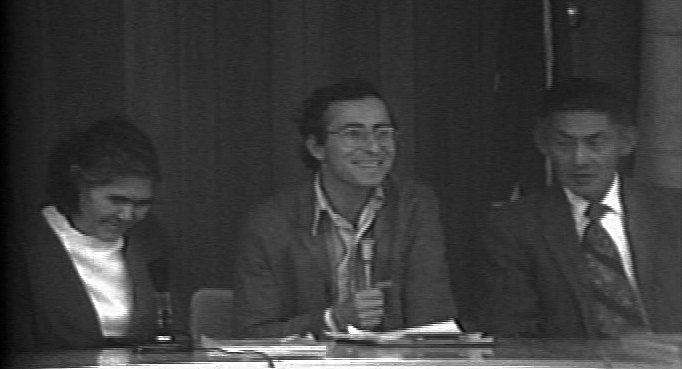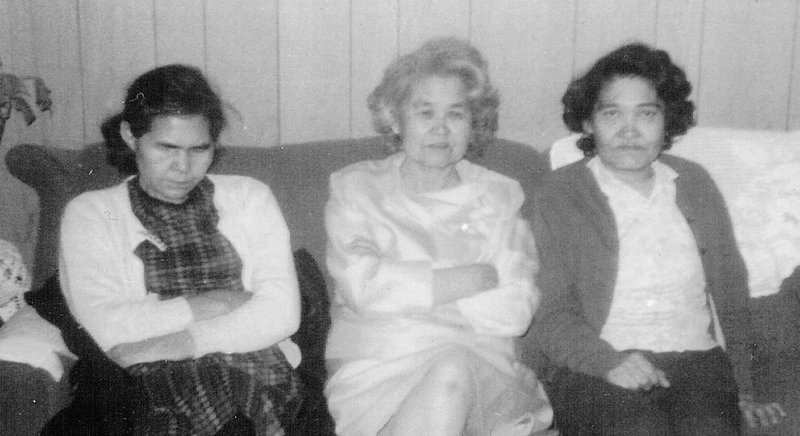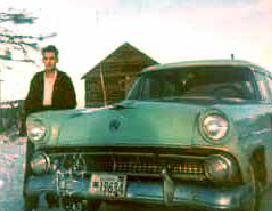Verb Themes by Ephim Baktuit
Click on the
![]() symbol
to hear the audio recording of a word.
symbol
to hear the audio recording of a word.
To go, to walk, to move
Ø+(y)u° - (sg.) goes, walks
- yeh tazu
 - s/he went there
- s/he went there - guduh gheyuł
 - s/he is on his way here
- s/he is on his way here - yeh tanshu
 - I’m about to go there
- I’m about to go there - guduh gheshuł
 - I’m on my way here
- I’m on my way here
- yeh tgheshyuł
 - I will go there
- I will go there
- guduh ghinyuł
 - you are on your way here
- you are on your way here
- yeh nutasdzu
 - s/he went back there
- s/he went back there
- ndaduh tinyu dit?
 - Where are you going?
- Where are you going? - nach' nughejuł
 - s/he is coming back to us
- s/he is coming back to us - yeh nutgheshjuł
 - I’ll go back, walk back there
- I’ll go back, walk back there
Perambulative example
- yeh q'angheduk
 - s/he was going around here and there
- s/he was going around here and there
Ø+na - (nu) to move nomadically, move with gear
- yeh taznu
 - s/he moved there
- s/he moved there - yeh tinash
 - you move there
- you move there - yeh tgheshnał
 - we will move there, camp
- we will move there, camp - yeh ch'taznu
 - we moved there
- we moved there
- yeh q'anch'ghutnesh
 - we went there by boat
- we went there by boat
Ø+datl' - plural goes, walks
- yeh ts'tazdatl'
 - we are about to go there
- we are about to go there - yeh ch'tudał
 - we will go there
- we will go there
- ndadu tanhdatl' dit?
 - Where will you pl. go?
- Where will you pl. go?
(stop
![]() )
)
To swim
Ø+ba - (mot.) to swim (continuative aspect)
- neshba
 - I am swimming (down and back)
- I am swimming (down and back) - nen nnba
 - you are swimming (down and back)
- you are swimming (down and back) - yen ku neba
 - s/he is (also) swimming (down and back)
- s/he is (also) swimming (down and back)
Perambulative imperfective
- nugheshbał
 - I am swimming around
- I am swimming around - nen ku nughinbał
 - you (sing.) (also) are swimming around
- you (sing.) (also) are swimming around - yen ku nughebał
 - s/he (also) is swimming around
- s/he (also) is swimming around
-
nuyehbał
 - you (pl.) are swimming around
- you (pl.) are swimming around - yina ku nuqubał
 - they are swimming around
- they are swimming around
Other perambulative modes
- q'angheshtbak
 - I was swimming
- I was swimming
- q'anghintbak
 - you (sing.) swam
- you (sing.) swam - yen ku q'anghetbak
 - s/he swam
- s/he swam - q'anch'utbak
 - we swam
- we swam - q'anyehbak
 - you (pl.) swam
- you (pl.) swam
- yina ku q'anqutbak
 - they swam
- they swam
- q'antgheshtbash
 - I will swim
- I will swim
- q'antghitbash
 - you (sg.) will swim
- you (sg.) will swim - yen ku q'antutbash
 - s/he will swim
- s/he will swim - nana ku q'anch'tutbash
 - we will swim
- we will swim - q'antihtbash
 - you (pl.) will swim
- you (pl.) will swim
- q'anhtutbash
 - they will swim
- they will swim
(stop
![]() )
)
To laugh
ja#l+dleq' - (op.) to laugh
- begh jagheldleq'
 - s/he laughed about it
- s/he laughed about it - izhi begh jagheldleq'
 - s/he laughed about his name
- s/he laughed about his name - hugh jagheldleq'
 - s/he laughed at himself
- s/he laughed at himself
- hugh jagheldleq'
 - I laughed at myself
- I laughed at myself
O+gh+Ø+dleq' - (conv.) to laugh at, mock O
- hughasdedleq'
 - s/he mocked himself
- s/he mocked himself - niłhegh hghazdleq'
 - they mocked each other
- they mocked each other - jashghiłyeq'
 - that puzzles me
- that puzzles me
(stop
![]() )
)
To wash
P+lu/nan#l+daq/ta/lu°,la - (op.) wash, wipe P’s hands, face
- nuk'ełah
 - I am washing them (dishes)
- I am washing them (dishes)
- luk'eldah
 - I am washing my hands
- I am washing my hands - luk'tgheldah
 - I will wash my hands
- I will wash my hands - nuk'tghełah
 - I will wash them (clothes)
- I will wash them (clothes) - nuhutgheltah
 - I will take a bath, shower
- I will take a bath, shower - nuzełtan
 - I washed him, it (dog)
- I washed him, it (dog) - nuk'ilah
 - you wash them (clothes)
- you wash them (clothes) - luk'tuldah
 - s/he will wash his hands
- s/he will wash his hands - nuytułtah
 - s/he will wash him, it (dog)
- s/he will wash him, it (dog) - nuyiłtan
 - s/he washed him, it (dog)
- s/he washed him, it (dog) - nuhuhtulyah
 - they will take a bath, shower
- they will take a bath, shower
(stop
![]() )
)
Home
 Feodosia Sacaloff, James
Kari and Peter Kalifornsky at 1974 Kenai Peninsula History
conference.
Feodosia Sacaloff, James
Kari and Peter Kalifornsky at 1974 Kenai Peninsula History
conference.
 Feodisia Sacaloff, Bertha
Monfor, and Eva Lorenzo at Bertha's home ca. 1972.
Feodisia Sacaloff, Bertha
Monfor, and Eva Lorenzo at Bertha's home ca. 1972.
 Ephim Baktuit in Kenai, ca. 1953.
Ephim Baktuit in Kenai, ca. 1953.
 Feodosia Sacaloff, James
Kari and Peter Kalifornsky at 1974 Kenai Peninsula History
conference.
Feodosia Sacaloff, James
Kari and Peter Kalifornsky at 1974 Kenai Peninsula History
conference.
 Feodisia Sacaloff, Bertha
Monfor, and Eva Lorenzo at Bertha's home ca. 1972.
Feodisia Sacaloff, Bertha
Monfor, and Eva Lorenzo at Bertha's home ca. 1972.
 Ephim Baktuit in Kenai, ca. 1953.
Ephim Baktuit in Kenai, ca. 1953.